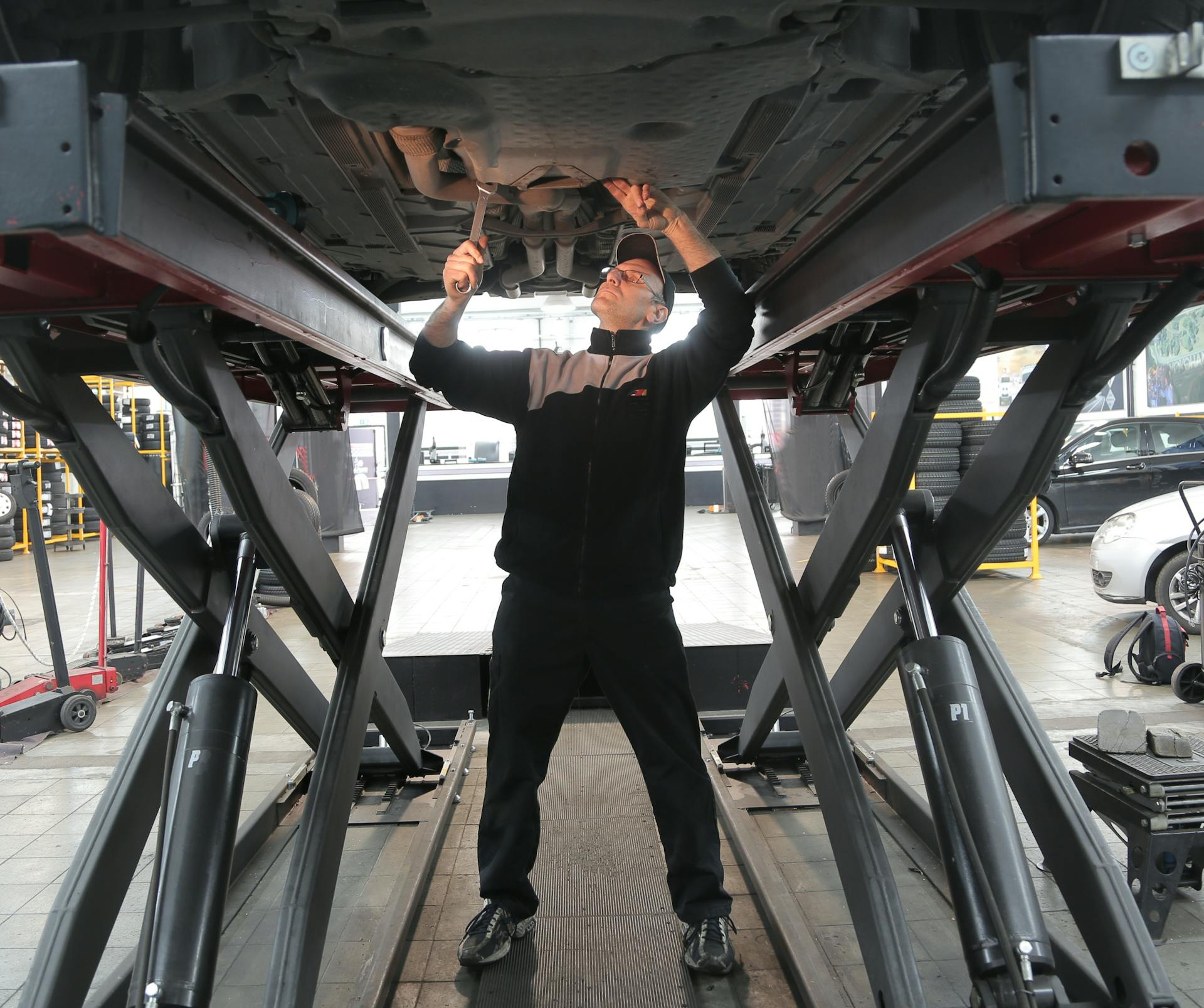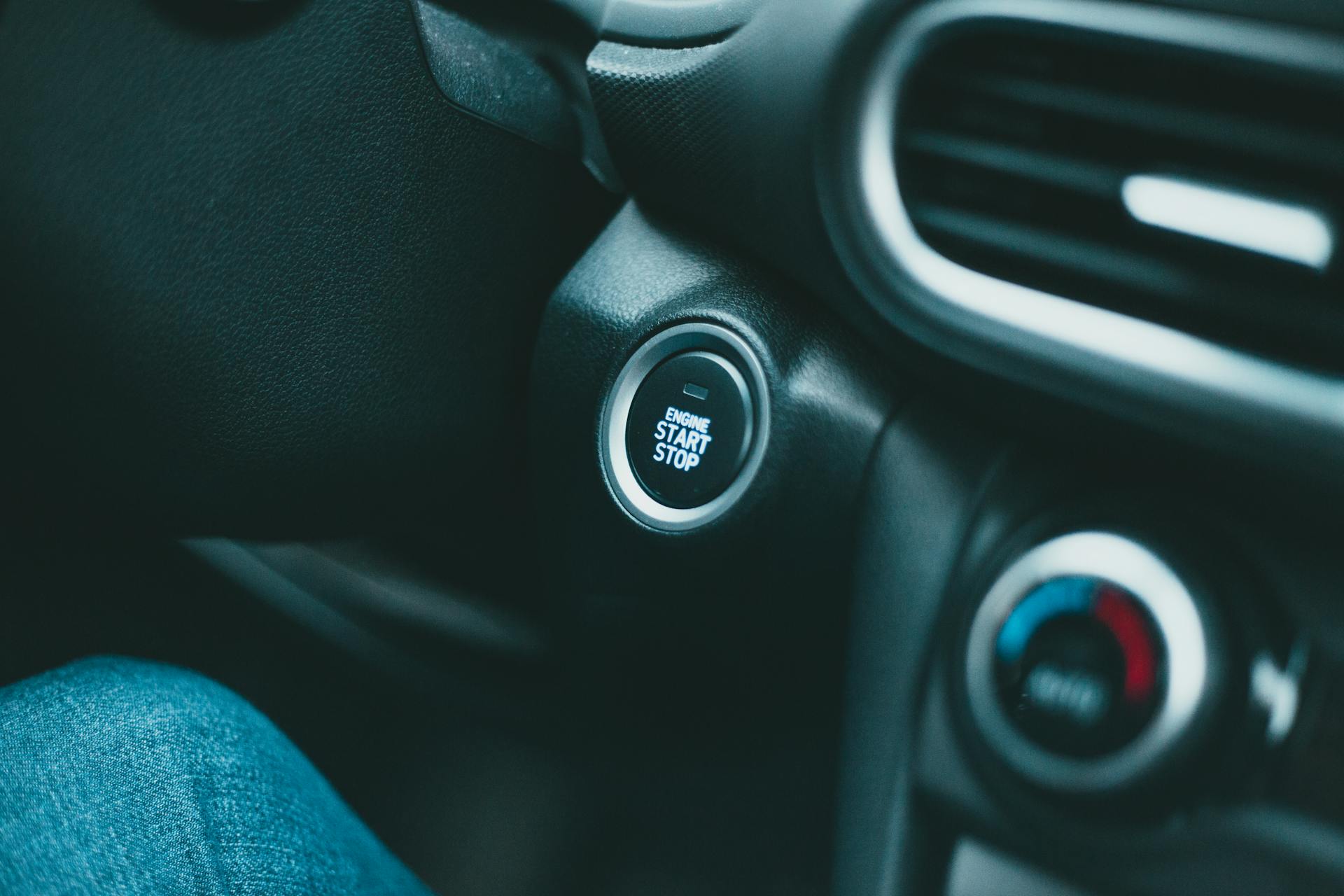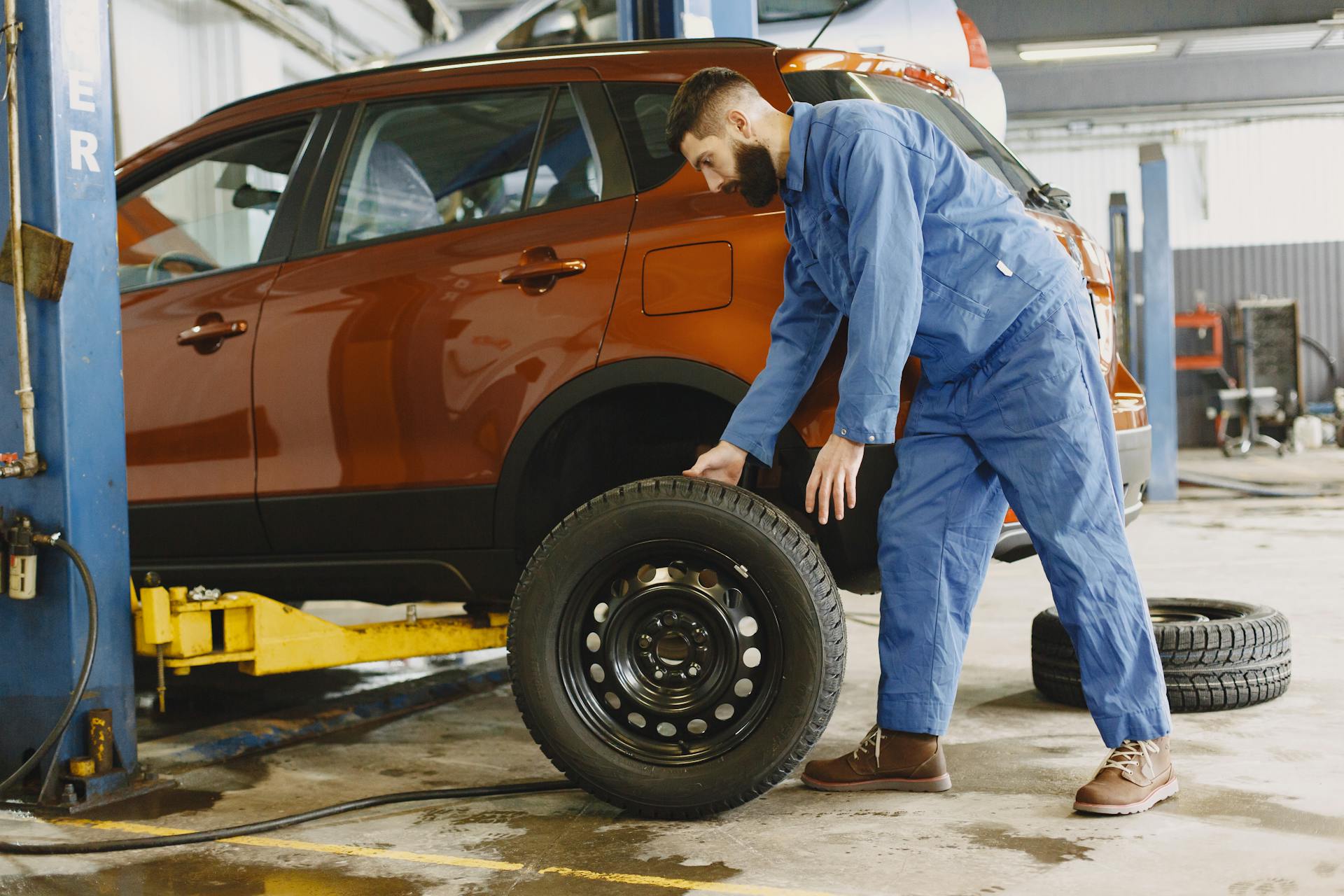
Is your car running hot? If the temperature gauge on your dashboard climbs steadily towards 220 degrees as you're driving, then it's time to investigate what's causing your car to run hot. Tom Harbid, an auto repair expert, has come up with eight possible reasons why your car engine may be overheating.
When the temperature creeps higher than 220 degrees, it's a warning sign that something is wrong. Don't ignore this symptom because it could lead to costly auto repairs down the road. Learning how to diagnose and fix simple problems can help you avoid more expensive issues later on. Start small and work your way up the car repair ladder by tackling these 100 car maintenance tasks every DIYer should know.
So if you want to keep your car running smoothly and prevent potential hazards, read on for the top eight reasons why your car may be running hot.
Check this out: How Car Brakes Work
Car maintenance seems daunting at first, but start small and work up the car repair ladder. Here are 100 car repair tasks and maintenance you can do yourself.

Car maintenance can seem overwhelming at first, but don't let it discourage you from keeping your car running smoothly. The key is to start small and work your way up the ladder of car repair tasks. Even if you're not an expert, there are plenty of things you can do yourself to keep your car in tip-top shape. In fact, our experts handpick 100 different car repair tasks and maintenance that anyone can do.
From simple tasks like changing a flat tire or replacing windshield wipers to more complex repairs like changing the oil or replacing brake pads, there are plenty of things you can do on your own without having to take your car into the shop. Not only will this save you money, but it will also give you a better understanding of how your car works and how to keep it running smoothly. So don't be intimidated by car maintenance – with a little effort and dedication, you can become an expert in no time!
If this caught your attention, see: Car Clicks When Starting
Identifying the Root Cause of Your Fuel-Enriched Engine

If your car is running rich, it means that it's consuming too much fuel and producing too few emissions. This can result in decreased fuel economy, reduced engine performance, and increased pollution levels. To identify the root cause of your fuel-enriched engine, you need to have good diagnosis skills.
Don't waste money by replacing parts until you've identified the problem. Use extra tools like an OBD2 scanner to read related trouble codes that may help you determine the source of the issue. Troubled code data will give you a sensor start point or live data values such as O2 sensor, fuel amount, and more.
Using an external air-fuel meter connected to your emission control tester or actual air-fuel meter can help you measure your engine's fuel mixture without removing fuel injectors or spark plugs. Temperature sensors like air temperature, MAF sensor, MAP sensor, and fuel pressure regulator can also be checked using this method. Acceleration check with vacuum hose inspection is another way to find out if there are any issues with your car's rich fuel mixture. Check for technical service bulletins specific to your car model or manufacturer since some mini vehicles have known problems regarding their rich fuel mixture.
Is Your Car Always Running Hot? Learn How to Sell It.
If your car is always running hot, it may be time to consider selling it. There could be a number of things wrong with it, such as a bad radiator or busted water pump, and repairs can be costly. If you don't mind putting in the money for repairs on a regular basis, then that's great. But if you're on the older side or just looking for an easier solution, selling your car might be the best option.
Cash Cars Buyer is a great option for those looking to sell their running hot car quickly and easily. They specialize in buying cars that are not in top condition, including those that run hot. They'll take care of all the paperwork and offer competitive prices for your vehicle.
Running hot can be a sign of serious issues with your car's engine, so it's important to address the problem as soon as possible. However, if you're tired of dealing with constant repairs and are ready to move on from your car, selling it to Cash Cars Buyer could be a great solution. Don't let a running hot car hold you back any longer - consider selling it today!
Restore Power: How to Easily Replace a Blown Fuse

If you're experiencing issues with your car running, it may be due to a blown fuse. Fortunately, fuses are easy and inexpensive to replace. First, locate the fuse box in your vehicle. Consult your owner's manual to find the exact location and which fuses control specific functions. Then, use a fuse puller or pliers to remove the blown fuse and replace it with a new one of the same amperage. This process only takes a few minutes and costs very little compared to taking your car to a repair shop. Learning how to replace fuses yourself can save time and money in the long run, so why not give it a try?
Why Your Car May Be Running Hot: Common Culprits to Look For
Car running hot can be a worrying sign for any driver. There are several things you're going to want to check if this happens, including what's causing the issue and why your car is overheating. It can be tricky answering the question of what's causing your car to run hot, but common culprits include a malfunctioning thermostat, a clogged radiator, low coolant levels or even something as simple as a damaged fan belt. If you ignore the problem, it could lead to serious damage to your engine back - so make sure you act fast!
1. Your Car Doesn’t Have Enough Coolant in It
If your car is running hot, it may be due to low coolant levels. Your car's cooling system is specifically designed to help regulate the temperature of your engine, and when the fluid levels are running low, it can lead to your car overheating.
It's important to check your car's coolant levels regularly, especially during hot summer months or after long trips. If you notice that your car is running hot or if the temperature gauge on your dashboard starts rising, pull over as soon as possible and let your car cool down before checking the coolant levels. Ignoring this issue could cause serious damage to your engine and leave you stranded on the side of the road.
2. Your Cooling System Has Sprung a Leak
If you notice that your car is running hot, or if you see ground coolant underneath, it's a good guess that your car's cooling system has sprung a leak. Take a quick glance underneath your car to confirm this suspicion. If you see green or orange liquid on the ground and smell a sweet smell, then your cooling system is definitely leaking.
This is not something that can be ignored or put off until later. A malfunctioning cooling system can cause serious damage to your engine and other parts of the car. It's important to get it fixed ASAP so that you don't end up with even more costly repairs down the line. Don't wait until it's too late - invest in a functioning cooling system that'll keep your car running smoothly for years to come.
3. Your Radiator Isn’t Working
When we think about the car running, we automatically associate it with the engine cool. But what happens when your car isn't running hot? The answer might be that your cars radiator stops working. The function of a radiator is to remove heat from the engine and cool down the coolant in order to keep your engine at a safe temperature. If your car isn't running hot but the coolant isn't circulating properly, this could mean that your radiator needs to be checked out.
If you find that your car isn't running hot but the coolant isnt reaching its full potential or if you notice any leaks in the system, it's important to have it checked out as soon as possible. A malfunctioning radiator can cause serious damage to your engine and result in costly repairs later on down the line. So if you suspect that your cars radiator stops working, don't hesitate to take it in for a professional inspection before it's too late!
4. Your Oil Is On the Lower Side
When it comes to car running, the engine plays an important part. One of the most crucial engines parts is the lubrication oil. This oil helps to prevent friction between moving components in the engine by providing a protective layer. It also helps to cool down the engine by dissipating heat caused by friction. That's why it's essential to keep an eye on your car's oil level and make sure you have enough of it. If you don't change your oil regularly or let it run low, your car running hot will be inevitable.
So, always keep in mind you're recommended amount and check your oil level frequently to avoid any problems with your car running smoothly. Don't wait until you see a warning light on your dashboard or hear strange noises coming from under the hood before taking action. Be proactive and keep your car well-maintained by checking its oil level regularly and changing it at the recommended intervals. This way, you can ensure that all engines parts are working correctly, and you'll enjoy safe and worry-free driving for years to come!
5. Your Thermostat Is On the Fritz
If your car is running hot and the engine spiking, it's time to check your thermostat. The thermostat helps regulate the temperature of your engine by opening and closing to send coolant through the cooling system. If the thermostat stops working or malfunctions, it can cause serious damage to your engine.
You should always keep an eye on your cooling system and make sure everything is in good working order. Regular maintenance and check-ups can help prevent issues with your thermostat and other parts of your cooling system. Don't let a malfunctioning thermostat ruin your day - get it checked out as soon as possible!
6. Your Coolant Hoses Are Experiencing Issues
Your car's cooling system is responsible for keeping your engine cool while it runs. One of the most important components of this system is the coolant hoses, which carry coolant from the radiator to the engine and back again. However, in tough conditions, these hoses can experience issues and even rupture altogether.
If you notice your car running hot or if you inspect your hoses and see that they are worn-out, you'll want to steer clear of driving until you get them fixed. The hoses are located in various areas of the cooling system, so it's important to ensure that all hoses are in good condition for the entire system to function properly. Don't let a small issue turn into a larger problem - take care of your cooling system and keep your car running smoothly.
7. Your Heater Core Is Clogged
If you notice that your car running hot or the heater is not working properly, it could be due to a clogged heater core. The heater core is a small heat exchanger unit located under the dashboard of your car. It works by transferring heat from the engine coolant to the air that blows through your car's vents.
Over time, debris and sediment can build up in the heater core, causing it to become clogged. This leads to reduced airflow through the vents and decreased heating efficiency. If left untreated, a clogged heater core can lead to more serious engine problems down the road. It's important to have your car inspected by a professional as soon as you notice any issues with your heating system or if you feel like your car is running hot.
Frequently Asked Questions
What does it mean when an engine is running rich?
An engine is running rich when it has too much fuel and not enough air in the combustion chamber. This can cause a variety of issues, including reduced fuel efficiency and potential damage to the engine over time.
Can running rich damage the engine?
Yes, running rich can damage the engine by causing fouled spark plugs, reduced fuel efficiency, and increased carbon buildup in the exhaust system. It can also lead to overheating and premature wear of engine components.
Is running rich really bad for the engine?
Yes, running rich can be bad for the engine because it leads to incomplete combustion and buildup of carbon deposits, which can cause damage to various engine components over time.
How can I save money on car repairs and maintenance?
Regularly maintaining your car, doing simple DIY repairs, shopping around for affordable mechanics and parts, and driving carefully can all help save money on car repairs and maintenance.
Why does engine run rich and not accelerate?
An engine running rich means there is too much fuel and not enough air. This can cause acceleration problems because the excess fuel can create a bogging effect, preventing the engine from getting enough power to move forward.
Featured Images: pexels.com

